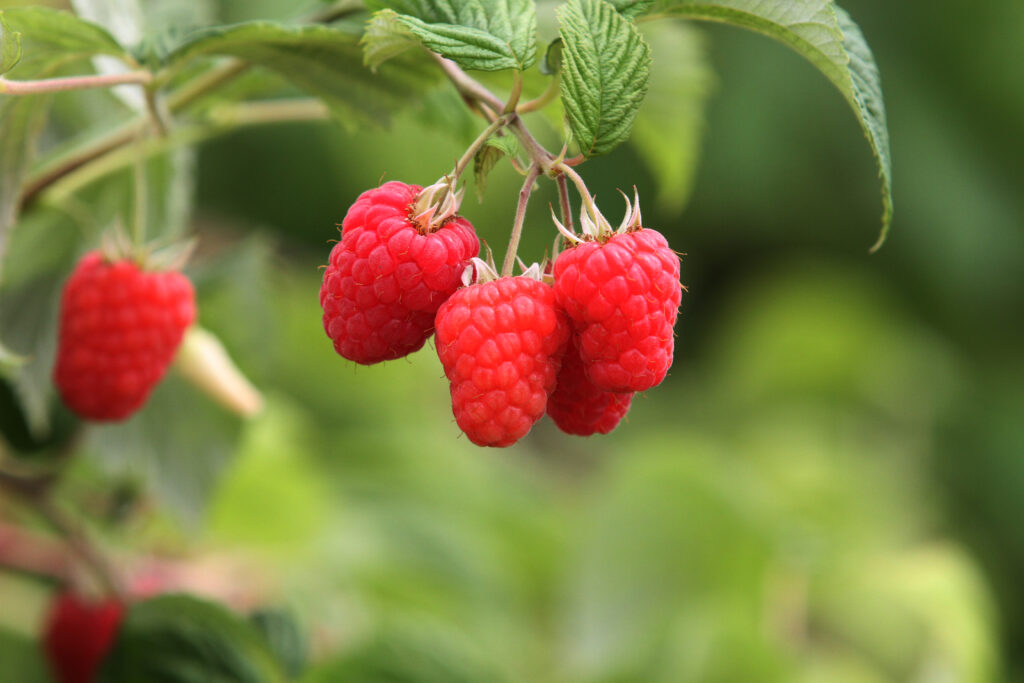Raspberry Breeding
James Hutton Institute Scientific Services raspberry breeding programme is funded by the Raspberry Breeding Consortium (RBC); a partnership of growers, marketing groups and propagators who keep the objectives focused on the current needs of the industry.
Its purpose is to create new and improved raspberry varieties, a process accelerated via the innovative science of the James Hutton Institute.
Raspberries – a growing success story
The raspberry breeding programme builds on over 60 years of previous breeding and has undergone a series of step changes since the 1990s, shifting breeding effort from processing and machine harvesting to fresh market, adapted to growing under protected cropping systems. The most significant advancement is the introduction and routine use of molecular markers, developed as part of the underpinning science of James Hutton Institute in order to develop varieties more quickly.
Currently the programme aims to develop new raspberry floricane and primocane cultivars with outstanding fruit quality and productivity for the fresh market. New cultivars will have improved resistance to pathogens, with particular emphasis on Phytophthora root rot, and will be economic to grow. The programme focuses on the use of molecular markers to identify important traits early in the process to shorten the timescale. The breeding objectives are reviewed annually with input from the industry partners, who have recently prioritised traits to reduce labour costs, especially to improve picking efficiency.
Nikki Jennings, Soft Fruit Breeder
Hutton’s Raspberry breeding is focusing on bring new varieties to market that tackle pressing industry concerns while still being flavourful and what the consumers wants.

James Hutton has a portfolio of 23 raspberry cultivars since the establishment of the programme. Glen Moy and Glen Prosen were the first spinefree cultivars for machine harvesting. Glen Ample dominated the UK production area for more than a decade. Glen Dee and Glen Carron were both selected for the fresh market and protected cropping. More recently, James Hutton Institute Scientific Services commercialised Glen Mor, the first cultivar with the molecular marker for root rot resistance, Glen Eden and the first two primocanes to be released from the programme; Skye and Lewis.
